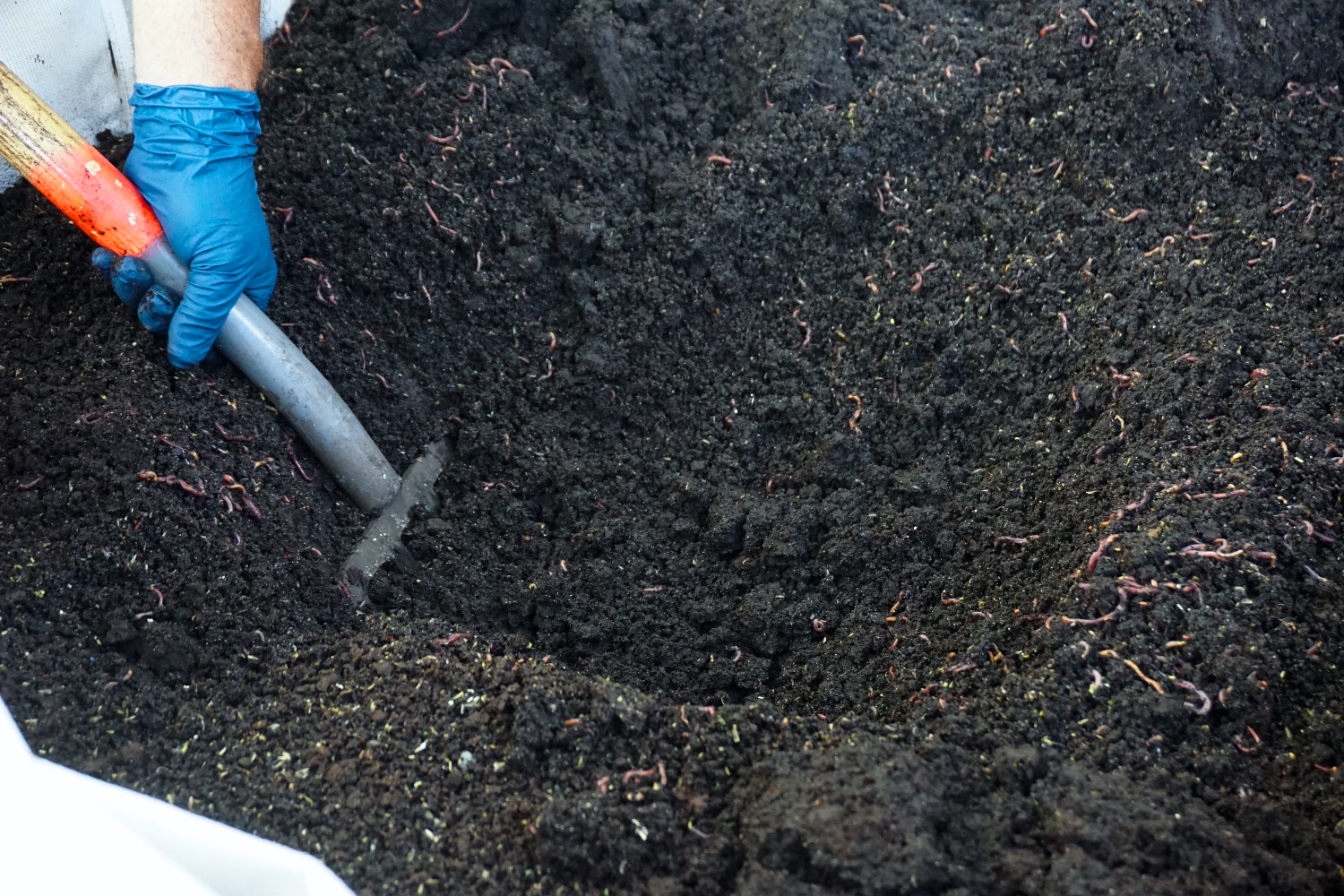Worm Castings vs. Regular Compost: Which is Better for Your Plants?

As an organic gardener, you've probably heard both worm castings and compost praised as essential soil amendments. But when you're standing in the garden center or planning your composting setup, which one should you choose? The answer might surprise you – and understanding the differences could transform your gardening success.
What Are Worm Castings?
Worm castings, often called "black gold" by gardeners, are the nutrient-rich waste produced by earthworms. When worms digest organic matter, they create these small, dark granules that are packed with immediately available nutrients and beneficial microorganisms. Think of worm castings as nature's perfect plant food – pre-processed and ready for your plants to absorb.
What Is Regular Compost?
Regular compost is decomposed organic matter created through the breakdown of kitchen scraps, yard waste, and other organic materials by bacteria, fungi, and other microorganisms. This process, called composting, typically takes several months and requires proper ratios of carbon and nitrogen materials, adequate moisture, and regular turning for optimal results.
The Nutritional Showdown
Worm Castings: The Nutrient Powerhouse
Worm castings contain a more concentrated and immediately available form of nutrients compared to regular compost:
- Nitrogen: 1-2% (slow-release, won't burn plants)
- Phosphorus: 1-2% (readily available for root development)
- Potassium: 1-2% (essential for plant health and disease resistance)
- Calcium and Magnesium: Higher concentrations than most composts
- Micronutrients: Rich in iron, manganese, zinc, and other trace elements
The key advantage? These nutrients are in a form that plants can absorb immediately without further breakdown.
Regular Compost: The Soil Builder
Regular compost typically contains:
- Nitrogen: 0.5-1.5% (varies widely based on materials used)
- Phosphorus: 0.2-1% (often needs soil microbes to make it available)
- Potassium: 0.5-1.5% (release rate depends on composting materials)
- Organic Matter: Higher volume per pound than worm castings
Compost excels at improving soil structure, water retention, and providing long-term organic matter.
Microbiology: Where Worm Castings Shine
This is where worm castings truly outshine regular compost. The digestive process of earthworms creates an incredibly rich microbial ecosystem:
- Beneficial Bacteria: 10-20 times more concentrated than in regular compost
- Plant Growth Hormones: Natural auxins and cytokinins that promote healthy growth
- Disease-Suppressing Organisms: Help protect plants from soil-borne pathogens
- Enzyme Activity: Higher levels of enzymes that help plants access nutrients
Regular compost contains beneficial microorganisms too, but not in the same concentrated, plant-ready form found in worm castings.
pH and Plant Health
Worm Castings: Naturally pH neutral (around 7.0), making them safe for all plants and unlikely to alter your soil's pH dramatically.
Regular Compost: pH can vary significantly (5.0-8.5) depending on source materials. While this isn't necessarily bad, it requires more attention to ensure compatibility with your soil and plants.
Application and Usage
Worm Castings
- Rate: Use 10-20% of your potting mix, or 1/4 to 1/2 inch layer as top dressing
- Frequency: Can be applied throughout the growing season without risk of burning
- Best for: Seed starting, container gardening, transplant shock prevention, and as a gentle fertilizer
Regular Compost
- Rate: Use 25-30% of your potting mix, or 1-3 inch layer worked into soil
- Frequency: Typically applied once or twice per year
- Best for: Building soil structure, improving water retention, and long-term soil health
Cost Considerations
Worm Castings: More expensive per pound ($15-30 per bag), but you need less quantity due to higher concentration.
Regular Compost: Less expensive in bulk ($20-40 per cubic yard), perfect for large-scale soil improvement projects.
Environmental Impact
Both options are environmentally friendly, but they serve different purposes:
- Worm Castings: Excellent for recycling kitchen scraps through vermicomposting, creating minimal waste
- Regular Compost: Perfect for handling larger volumes of yard waste and organic materials
The Verdict: Which Should You Choose?
The truth is, you don't have to choose just one. Here's when each excels:
Choose Worm Castings When:
- Starting seeds or working with seedlings
- Growing in containers or raised beds
- You want immediate nutrient availability
- Working with sensitive plants
- You need a gentle, burn-free fertilizer
Choose Regular Compost When:
- Improving clay or sandy soils
- Building long-term soil health
- Working with large garden areas
- You want to improve soil structure and water retention
- Budget is a primary concern for large applications
The Best Strategy: Use Both
For optimal results, many successful organic gardeners use both:
- Build your soil foundation with regular compost for structure and long-term health
- Boost plant nutrition with worm castings for immediate, gentle feeding
- Seasonal approach: Apply compost in fall for soil building, use worm castings throughout the growing season for feeding
Making Your Decision
Consider your gardening goals:
- New gardeners might start with worm castings for their foolproof, gentle nature
- Experienced gardeners with established systems often use compost as their base and worm castings as their premium amendment
- Container gardeners typically prefer worm castings for their concentrated nutrition in small spaces
- Large-scale gardeners might rely more heavily on compost for bulk soil improvement
Getting Started
Whether you choose worm castings, regular compost, or both, you're making a smart choice for organic gardening. Start small, observe how your plants respond, and adjust your approach based on your specific garden conditions and plant needs.
Remember, the best soil amendment is the one you'll use consistently. Both worm castings and compost will dramatically improve your garden's health compared to synthetic fertilizers alone.
Your plants – and the environment – will thank you for choosing organic, sustainable soil amendments that build long-term garden health rather than just providing quick fixes.
Ready to transform your garden with these organic powerhouses? Start with small applications and watch your plants thrive like never before.

